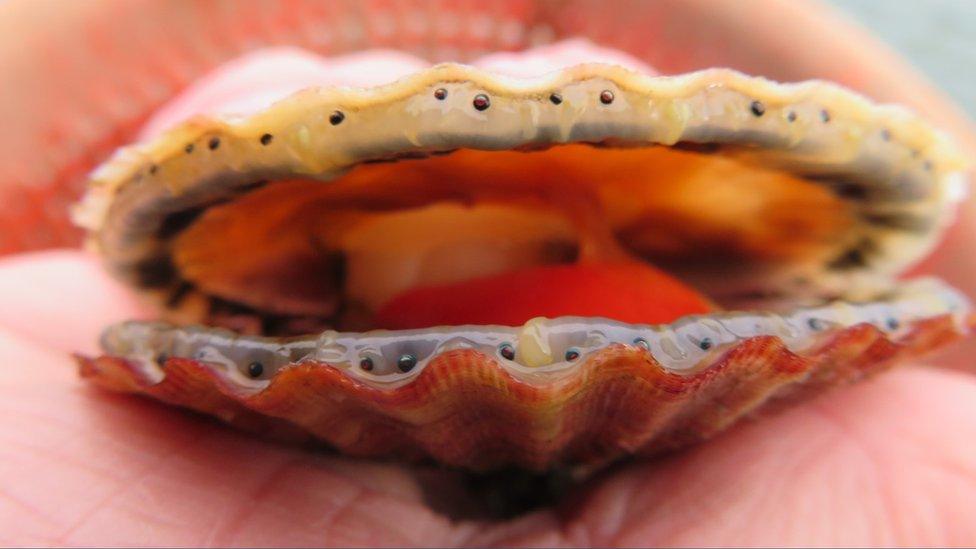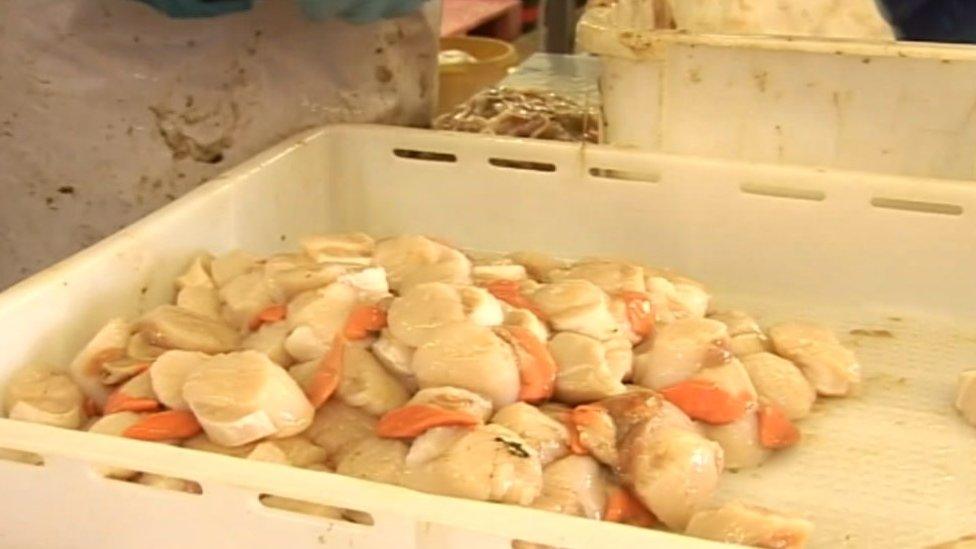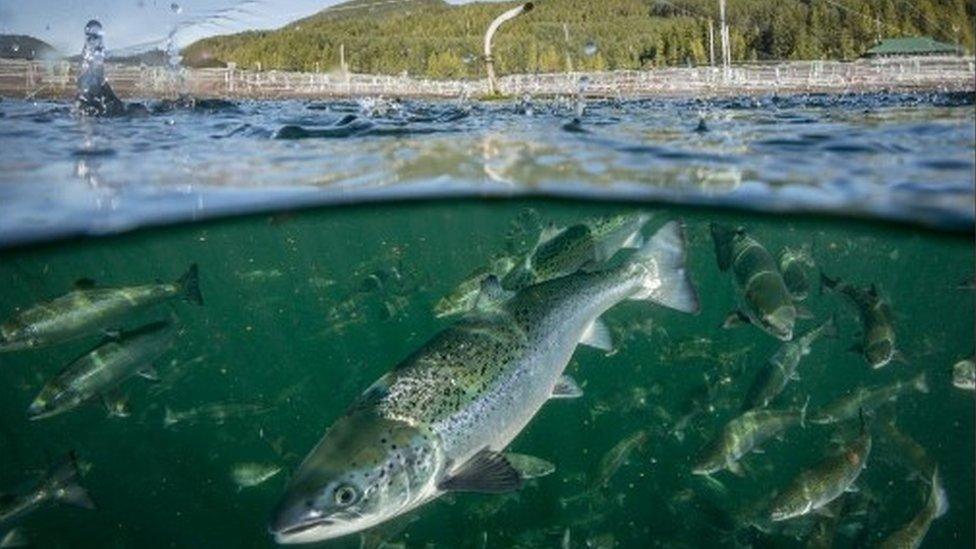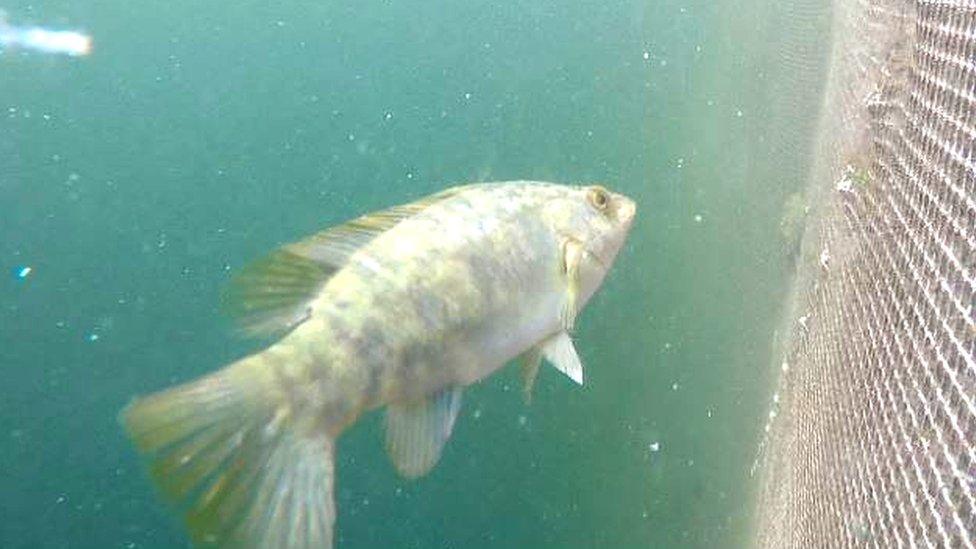'Sustainable' scallop trial to begin at Scarborough seaweed farm
- Published

A trial aiming to provide a sustainable alternative to existing scallop farming methods is set to begin.
Scallops are traditionally harvested by dredging the sea floor, which environmentalists say causes massive damage to habitats.
Marine firm SeaGrown has secured funding to trial cultivating scallops and oysters within a seaweed farm being developed off the coast at Scarborough.
The firm said new methods would eliminate the need for dredging.
SeaGrown says the scallops will be cultivated within its "low-impact" seaweed farm, which uses only the top five metres of water to grow three species of seaweed on floating lines.
The scallops will be grown in cages suspended below the seaweed to minimise the impact on the seafloor.
Wave Crookes, from SeaGrown, said: "This system will complement our seaweed farming to create a natural process for offshore shellfish cultivation."
He said the seaweed oxygenated the water, providing an ideal environment for the shellfish to grow.

UK fisheries currently land about 30,000 tonnes of scallops a year, mostly by dredging the seabed
According to the Yorkshire Wildlife Trust, which is supporting the project, the UK currently lands about 30,000 tonnes of scallops a year, the majority using dredge fisheries where a heavy metal toothed bar is dragged along the seabed.
Dr James Wood, from the trust, said: "Scallop dredging is one of the most invasive techniques - it is highly controversial.
"You are dragging a very heavy metal bar across the seabed and they are quite indiscriminate.
"We are looking to make fisheries sustainable, and in sensitive areas where we are trying to protect habitats, we are hoping this might provide an alternative," he said.
The trial is being funded by a grant from the Seafood Innovation Fund.

Follow BBC Yorkshire on Facebook, external, Twitter, external and Instagram, external. Send your story ideas to yorkslincs.news@bbc.co.uk, external.
- Published4 August 2019

- Published22 July 2019

- Published11 July 2019